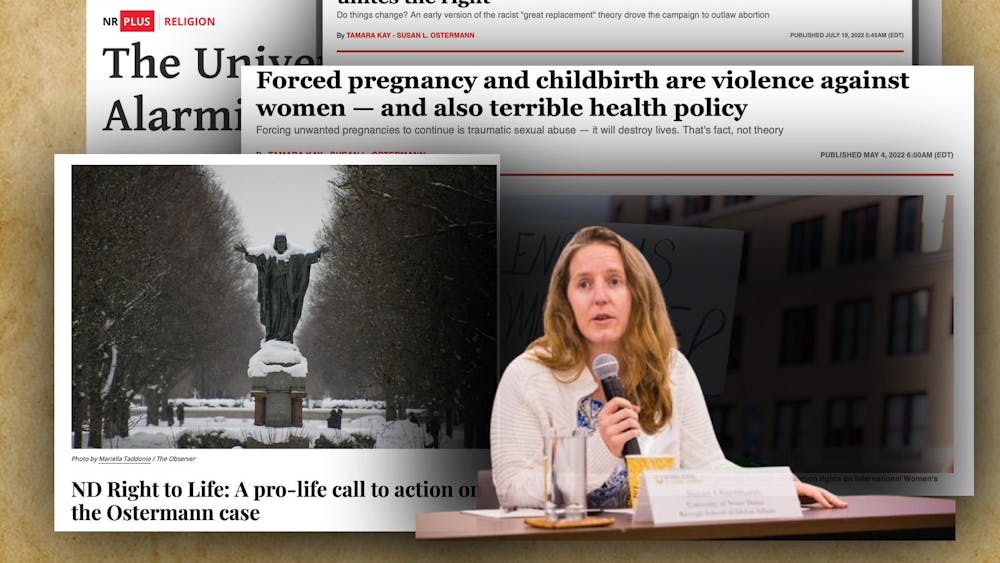Before leaving for college, I spent a lot of time working and volunteering in assisted living. The main facility that I worked at had a large hospice program, and it took in a lot of residents with late-stage Alzheimer’s. When I tell people about my experience working with elderly folks, I am usually commended for the nobility of the job. Often, they ask if it is sad or depressing being in an environment with people who cannot take care of themselves anymore; they believe it must be sad to be around people who I know are in their final years.
Honestly, it is sad to interact with people for months or years while watching them deteriorate. Since it was never a full-time job, I was not as emotionally attached to the residents as the caregivers and staff, but I still felt heavy when I heard that a resident who I interacted with a lot passed away.
More than anything, the deaths of the residents I spent time with made me think about geriatric care and the complications of elderly life. Every day, thousands of seniors reach the point where they cannot live a safe, independent life, and their closest relatives have to consider a difficult question: how do we best take care of them in their final years?
Throughout history, the answer has been simple: families must structure themselves around taking care of their eldest. In fact, this was not even a question that people would ask. When the elderly would lose their independence, their families automatically adjusted their lives to accommodate them. Today, our values around elderly people are so skewed that it has made the question too complex to prescribe an answer. One-size-fits-all geriatric care is an ancient thought, and no two families will respond to the call in the same way.
So what happened? The first step that we took to disrupt long-standing values around the elderly was making assisted living available. When it was introduced in the West, many thought: “Wow! How convenient is it that I can send my parent(s) to live in a nice community and not have to worry about taking care of them every day?” It would be awesome if senior living was like Alumni Hall. You arrive with all of your belongings, and 20 old folks are outside barking and celebrating your arrival. Then, every day, you go out and enjoy the sun and play spike ball. Unfortunately, the spike ball days have passed for these folks. Many of them want a peaceful, private life. Instead, we take people who are already confused from memory loss and move them into a dormitory-like building with a bunch of strangers. Would you believe that most of the folks there would actually rather live in their houses with family? Why is it acceptable to just funnel money into assisted living in order to get rid of the burden of caregiving?
Obviously, there are benefits that assisted living provides to society. I worked at one — I believe it! With rising costs of living, families often depend on two incomes and cannot afford to leave their jobs to become unpaid caregivers. Parents cannot rely on their kids to take care of their grandparents either because they have to attend school and pursue their own livelihoods. Moreover, most families cannot afford private caregivers, so residents who need round-the-clock nursing are afforded discounted security. The bottom line is this: assisted living is healthy if it is used with the right intentions.
The fact of the matter is that people send their parents and grandparents to assisted living because they do not want to deal with them. I have talked to residents whose children visit several times a week, and I have talked to others who might get a visit on a good year. The holidays are the toughest times of year for the lonely residents, as they see the family traffic pick up and are reminded of when they could spend the holidays with their families. It breaks my heart to interact with residents whose families used assisted living to send them away.
Assisted living is being abused. As time progresses, the average person is being stretched thinner and thinner by the increasing demands in our country. People are working later in their lives, keeping up with the ever-rising cost of living. The standard of education is rising, demanding more time and commitment from children and young adults. Every year, it becomes more difficult to personally take care of our loved ones. Money has become a replacement for love and care. As a country, we have become so concerned with growth and output that we are losing sight of the fundamental values that have brought us here. Consider how you want to be cared for in your later years. What can we do in the next 50 years to get there?
Matt Baird, proud native of Danville, California, is a sophomore majoring in English and Finance. He enjoys walking, listening to music and humming.
Assisted living is being abused
The views expressed in this column are those of the author and not necessarily those of The Observer.









